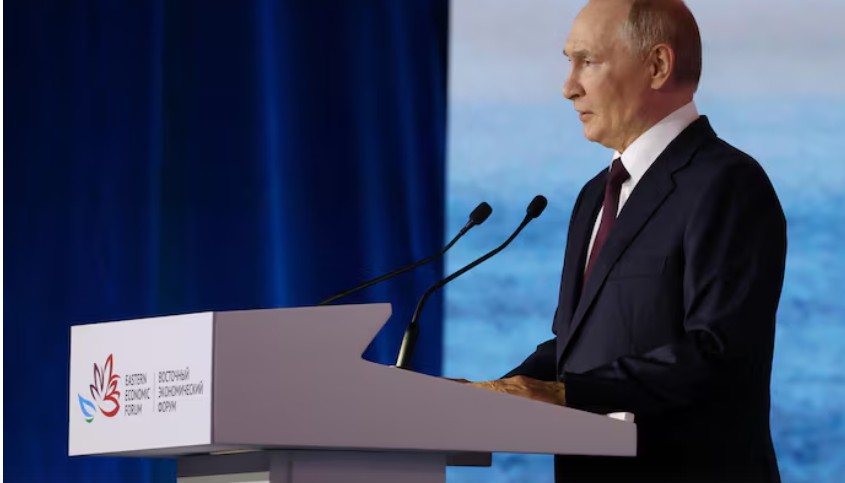Putin says any Western Troops in Ukraine Would be Legitimate Targets

Russian President Vladimir Putin issued a stark warning on Friday, declaring that any deployment of Western troops to Ukraine would make them “legitimate targets” for Russian military action. Speaking during the Eastern Economic Forum, Putin’s remarks come amid rising tensions over the future of international involvement in Ukraine, especially in light of recent Western pledges to ensure the country’s long-term security.
His comments were a direct response to a statement made just one day earlier by French President Emmanuel Macron, who announced that 26 countries had pledged postwar security guarantees to Ukraine. These guarantees include the possible deployment of an international force on land, at sea, and in the air to help stabilize Ukraine once active hostilities with Russia subside. While Macron emphasized that these forces would not be involved in frontline combat, but rather serve as part of a postwar “reassurance” presence, Putin made it clear that any foreign military presence on Ukrainian soil would be viewed as a hostile move by Moscow.
This rhetoric reflects Russia’s long-standing stance against NATO and Western military involvement near its borders, which it has often cited as a central reason for its invasion of Ukraine in 2022. Putin reiterated that foreign troop deployments would be unnecessary if a comprehensive and enforceable peace agreement is reached. He insisted that Russia would honor any treaty terms fully, suggesting that peace, not escalation, is in Russia’s interest though his warning makes clear that Moscow remains highly wary of what it sees as creeping NATO influence.
Putin’s statement is likely to stir further debate among NATO and European leaders, especially as they balance the need to support Ukraine with the risk of direct confrontation with Russia. The coming weeks will be crucial in determining whether Western nations follow through with their proposed postwar force, and how Moscow might react in practical terms.
